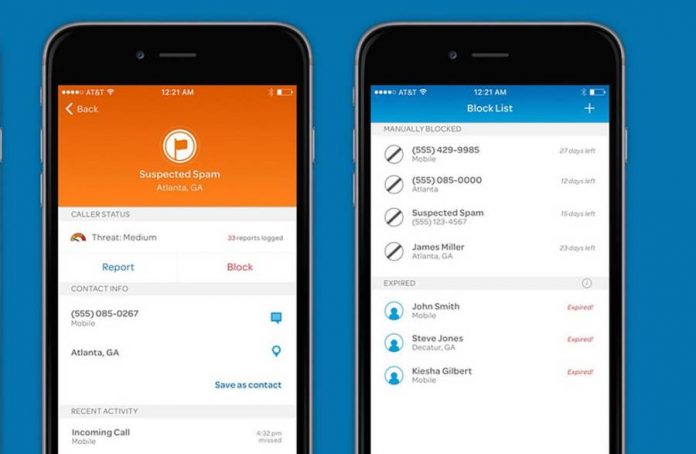
A week ago, AT&T officially unveiled its Call Protect service for postpaid wireless clients with HD Voice. It allows them to detect and block unwanted spam calls and help them avoid other types of phone call disturbances, such as fraud.
AT&T also released a mobile app to help customers personalize the service. Interested users can add the feature via their myAT&T account or the app itself, currently available for Android and iOS.
Call Protect is one of the most significant moves against automated calling since the creation of the Robocall Strike Force, an awareness group comprised of more than 30 technology and TC companies, including AT&T, who seek to end automated calling in the United States for good.
AT&T is finally doing something about spam callers

AT&T’s Senior Vice President for Device and Network Services Marketing Jeff Bradley wrote last Tuesday the company implemented this service as a response to customer complaints. He hopes that Call Protect will give some control back to the end user.
The company noted in their statement, however, that Call Protect might lead to accidental blockage of legitimate calls, which is why they encouraged users to whitelist certain numbers through the app.
Their service works automatically and only requires activation from the customer. Call Protect will issue warnings for suspected spam calls and attempt to deter fraudulent calls before they reach a client’s smartphone within the AT&T network.
The app is free for all types of devices but will only work with HD Voice-enabled phones, as stated above. The newest iPhone and Samsung Galaxy models are compatible, along with a broad range of HTC and LG options.
About the Robocall Strike Force
Randall Stephenson, AT&T’s CEO, is the current chairman of the ‘Robocall Strike Force,’ which held its second official meeting in October and has a certification from the Federal Communications Commission (FCC).
Earlier in May, Stephenson stated (in response to repeated complaints from customers) that AT&T did not have the authority to block robocalls. In June, however, the FCC released a statement noting that telecom enterprises “faced no legal barriers” to do so.
FCC Chairman Tom Wheeler put pressure on phone carriers by urging them to crack down on spam calls last July, which ultimately led to the creation of the RSF.
The Robocall Strike Force currently includes T-Mobile, BlackBerry, Apple, Google, Microsoft, Samsung, Nokia, Comcast, Sprint, and Verizon, to name a few companies. They have organized two meetings and released some official statements on their plans, available online at the FCC’s website.
Source: AT&T Call Protect










